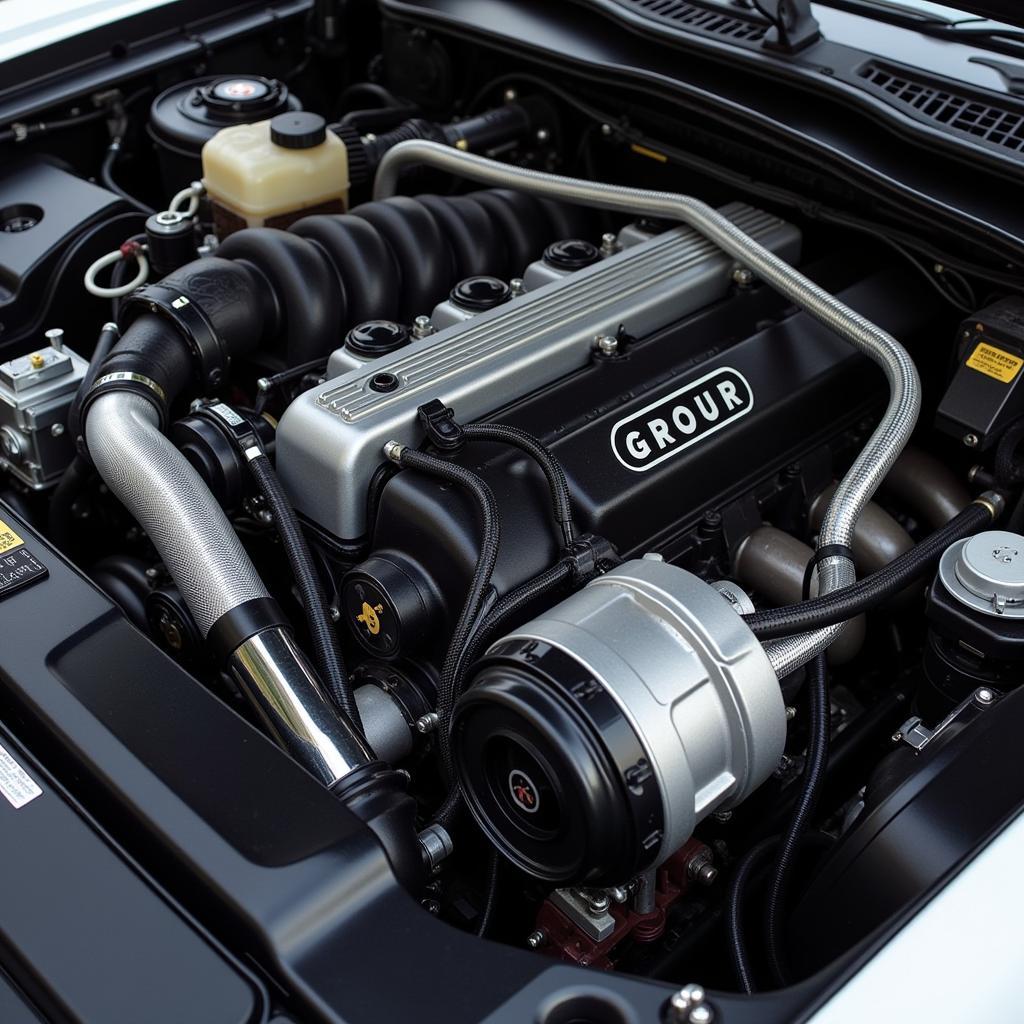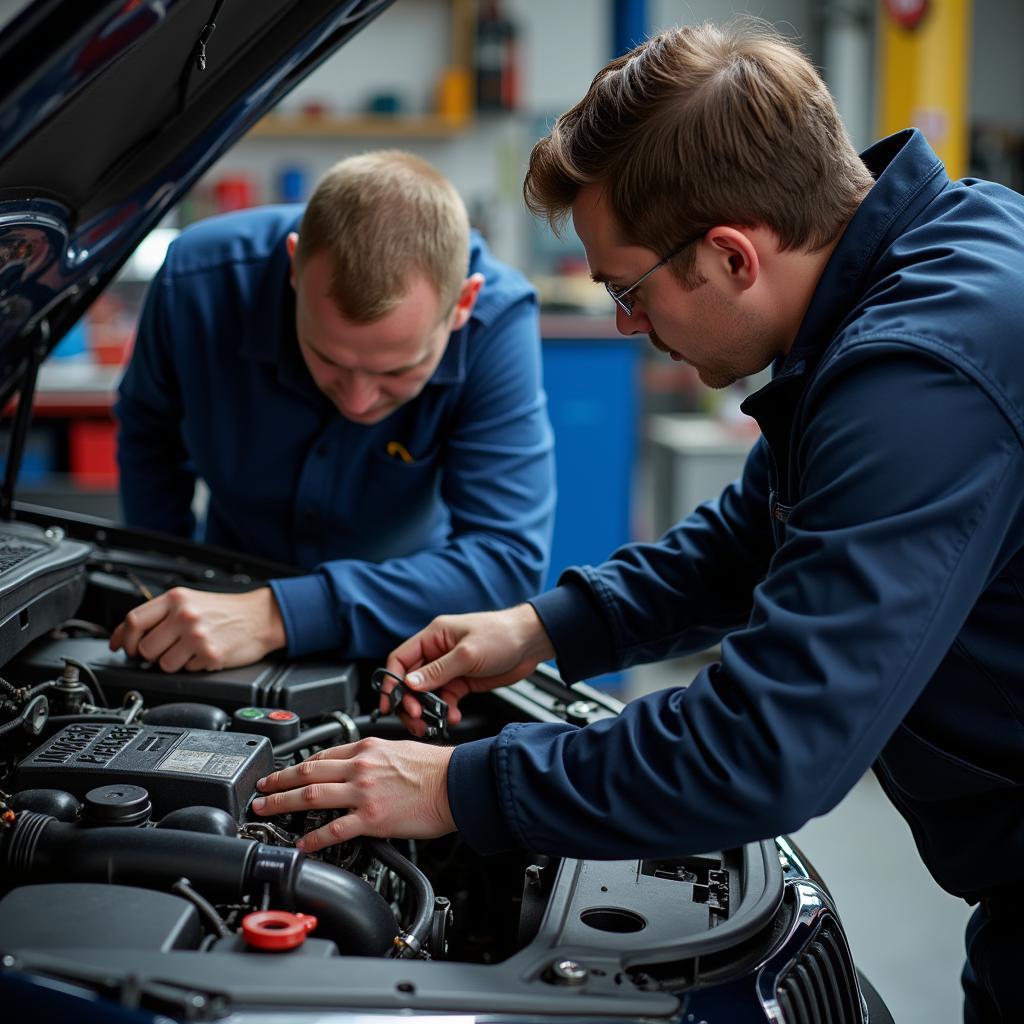Choosing between a German and Italian car often goes beyond aesthetics and performance. Maintenance, a critical aspect of ownership, significantly differs between these European automotive giants. This guide delves into the nuances of maintaining German cars versus Italian cars, empowering you to make informed decisions about your next automotive investment.
Reliability and Build Quality: The Foundation of Maintenance
 German Car Engine
German Car Engine
German cars are renowned for their robust engineering and precision manufacturing. Brands like BMW, Mercedes-Benz, and Audi prioritize durability and longevity, often translating into lower maintenance frequency. Their engines are typically over-engineered, built to withstand demanding driving conditions. However, this technological prowess often involves complex components, potentially leading to higher repair costs when issues do arise.
Italian cars, while equally captivating in design and performance, often prioritize driving experience and aesthetics. While brands like Ferrari, Lamborghini, and Alfa Romeo have made strides in reliability, they might require more frequent maintenance due to their focus on performance optimization.
Cost of Maintenance: Parts, Labor, and Expertise
German car parts can be more expensive due to their sophisticated engineering and the use of premium materials. Additionally, specialized tools and expertise might be necessary for repairs, contributing to higher labor costs. Independent German car specialists are becoming increasingly common, offering a potential alternative to dealerships, albeit with varying degrees of expertise.
Italian car parts, while generally more affordable than their German counterparts, might have limited availability outside authorized dealerships. The labor costs can also be significant, especially for exotic models requiring specialized knowledge.
Common Maintenance Needs: A Tale of Two Philosophies
German cars, with their emphasis on longevity, often require scheduled maintenance like oil changes, filter replacements, and brake services at longer intervals. However, their complex electronic systems can sometimes pose challenges, necessitating specialized diagnostic equipment.
Italian cars, while mechanically simpler in some aspects, might require more frequent attention to components like suspension, brakes, and clutches due to their performance-oriented nature. Regular inspections and fluid changes are crucial to ensure optimal performance and longevity.
DIY vs. Professional Servicing: A Question of Confidence
While some German car maintenance tasks like fluid top-ups can be handled by experienced DIY enthusiasts, more complex repairs often require specialized tools and knowledge best left to professionals. Attempting DIY repairs on intricate German engineering could lead to further damage and void warranties.
Italian cars, particularly older models, might offer more opportunities for DIY maintenance due to their relatively simpler mechanical designs. However, crucial systems like timing belts and brakes are best entrusted to qualified mechanics to ensure safety and optimal performance.
Extending the Lifespan: Proactive Care and Preventative Measures
“Regular maintenance is not just an expense; it’s an investment in the longevity and performance of your vehicle,” says Hans Zimmerman, a veteran German car mechanic with over 20 years of experience. “Addressing minor issues proactively can prevent them from escalating into costly repairs down the road.”
Whether you’re captivated by German engineering or Italian flair, adopting a proactive approach to maintenance is paramount. Regularly scheduled servicing, genuine parts, and addressing minor issues promptly can significantly extend the lifespan of your European automotive companion.
Conclusion
Deciding between German and Italian cars involves carefully weighing the pros and cons of their maintenance requirements. German cars, with their renowned reliability, might entail higher repair costs, while Italian cars, though potentially requiring more frequent servicing, can offer a more engaging ownership experience. Ultimately, the best choice depends on your individual needs, driving style, and budget.
Need expert advice tailored to your specific car maintenance needs? Contact AutoTipPro today at +1 (641) 206-8880 or visit our office at 500 N St Mary’s St, San Antonio, TX 78205, United States. We’re here to help you navigate the exciting, and sometimes challenging, world of automotive ownership.





Leave a Reply